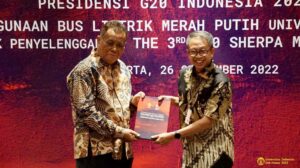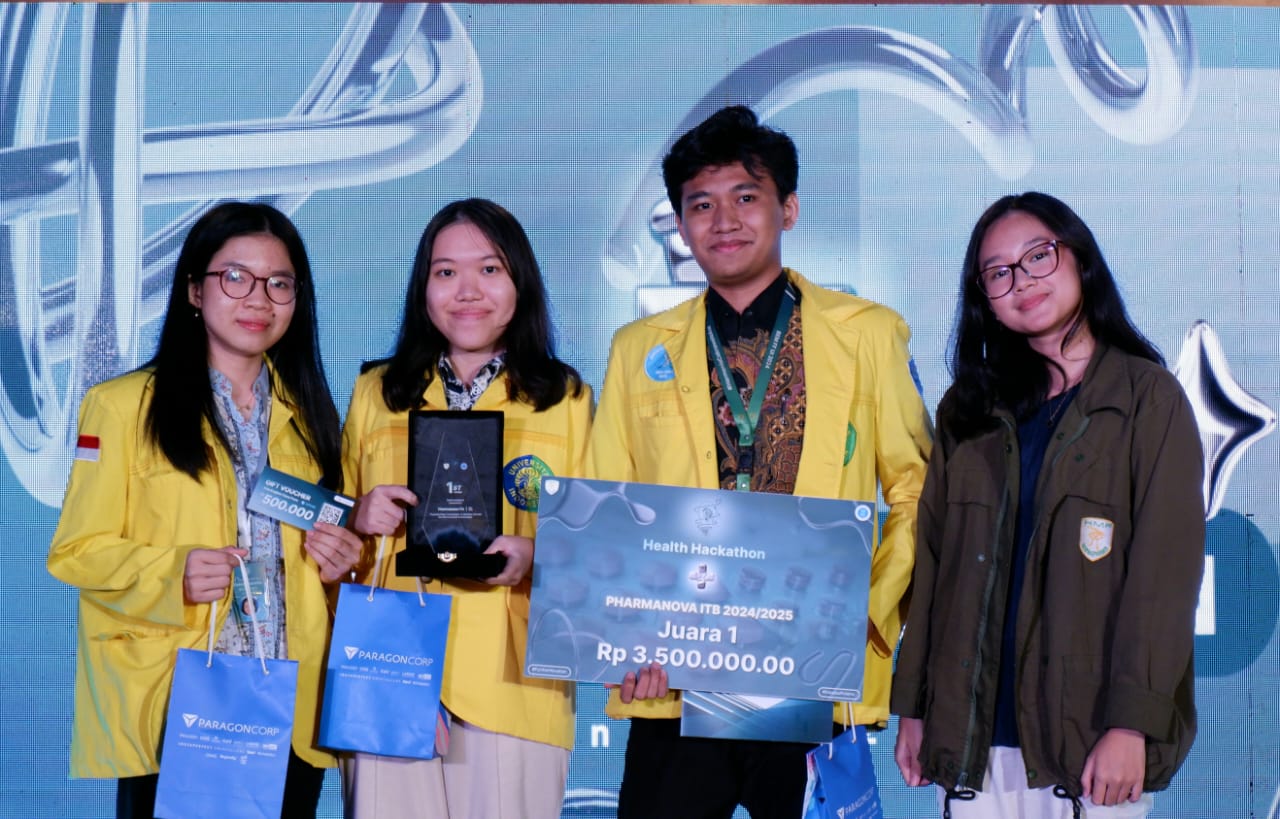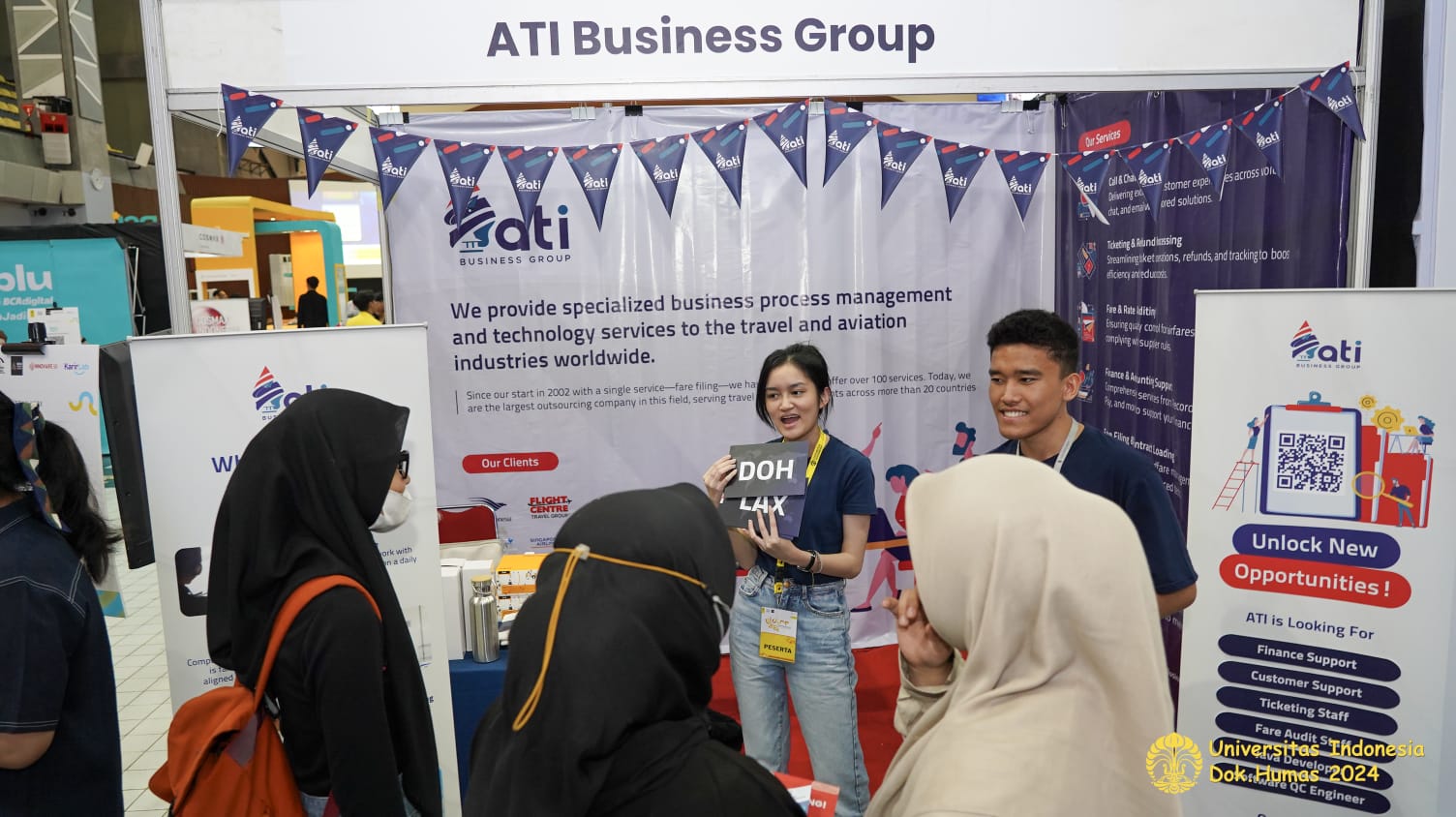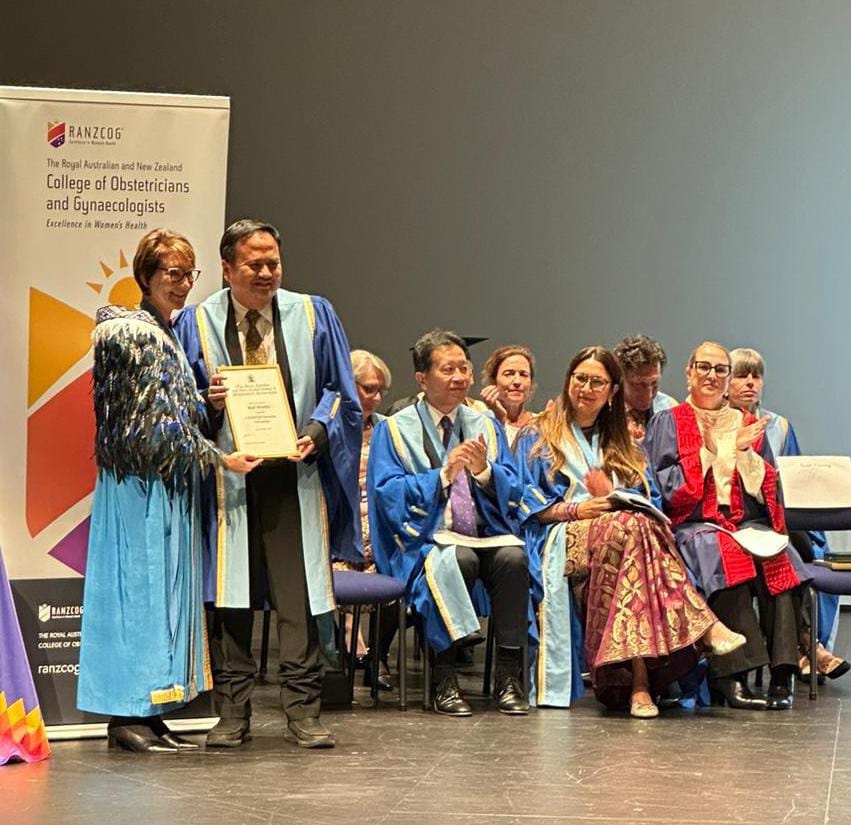
In an effort to provide intellectual support to Indonesia’s leadership in the G20, researchers from the Universitas Indonesia (UI) compiled 40 policy recommendations summarized in “Set of Policy Brief Universitas Indonesia for the G20 Indonesia Presidency 2022” and handed over to the Deputy for the Coordination of International Economic Cooperation/CoSherpa G20 Indonesia, Dr. Edi Prio Pambudi, at the opening of the 3rd G20 Sherpa Meeting in Yogyakarta, on Monday last week.
This collection of policy briefs contains policy recommendations that highlight three priority issues, namely strengthening the global health architecture, digital economic transformation, and energy transition. To strengthen the global health architecture, Indonesia’s G20 Presidency focuses on three strategies that include equitable distribution of health facilities and access to vaccines and medical devices; standardization of global health protocols for all countries in the world; and development of a global manufacturing and knowledge for pandemic response or pandemic prevention, preparednessand response (pandemic PPR).
To achieve this, it is necessary to take an inclusive and sustainable approach so that cooperation institutions that have been built both in intergovernmentalism, such as WHO and institutions built by non-state actors, can work together. In addition, a balanced approach is needed between the interests of large and small countries, the interests of pharmaceutical and medical device businesses, and the public health needs of developing countries.
For the strengthening of human resources, a real breakthrough is needed so that medical personnel and health workers are spread to countries that need health services. A comprehensive health financing scheme is also needed and can be achieved through a synergy of state financial sources, philanthropic and business sources, as well as sources of funds derived from community self-reliance. In addition, strengthening research and innovation in the health sector is also needed to achieve synergy between developed and developing countries.
In terms of digital economic transformation, Indonesia should encourage the digitization of supply chains in the G20 by implementing a digital-based Single Window Supply-Chain system. Indonesia should also promote sustainable international trade relations by increasing the inclusiveness of the global value chain and digitizing the supply chain of staple foods to minimize the impact of disruption. In addition, a framework that is sensitive to digital inequality needs to be established and value-added infrastructure development in natural resource processing industrial areas should be prioritized.
Domestically, it is necessary to formulate a personal data protection policy in order to maintain national resilience. This is due to the many data leakage cases that have occurred recently. The use of digitalization is also needed to develop Micro, Small and Medium Enterprises (MSMEs) to compete globally. This development can be done by forming an Indonesian marketplace cooperation, promoting fair playing field and anti-predatory pricing, and encouraging improvement by utilizing green open areas. To support this, the government needs to provide inclusive infrastructure and access to digital funding, one of which is through Alternative Crowdfunding Services.
Meanwhile, related to the issue of energy transition, the recommendation from UI that the government can do is to create an Energy Transition Mechanism. Indonesia can implement a policy mix in revenue recycling and prioritize multi-objective optimization over policy choices in trade-off situations. The revenue recycling strategy was implemented appropriately, for example by investing in the renewable energy sector. Increasing the utilization of renewable energy sources can be done through optimizing the development of power plants and integrating the diversity of water transport modes for energy efficiency and decarbonization to build a sustainable region.
The Rector of UI, Prof. Ari Kuncoro, S.E., M.A., Ph.D., hopes that the “Universitas Indonesia Policy Brief Collection for the 2022 Indonesia G20 Presidency” can be a scientific contribution and a real contribution of UI as a partner for the Indonesian government in the 2022 G20 Presidency. “We also hope that the thoughts of researchers, lecturers, students, and all UI academicians contained in this policy brief will also be useful for the development of science and technology to improve the welfare of the Indonesian and global communities,” Prof. Ari said.

UI has launched Research Based Policy– G20 2022 Grant program to conduct collaborative and interdisciplinary research that can generate solutions to strategic issues in the three main topics of the G20 2022 Summit. “Through this program, policy briefs are produced by UI researchers and expert teams in various working groups and engagement groups that are members of the Sherpa Track. We hope that the results of scientific thinking that has been formulated by UI academics can help all policy makers to make decisions that are beneficial to Indonesia and the world,” said UI Vice Rector for Research and Innovation, drg. Nurtami, Ph.D., Sp,OF(K).



